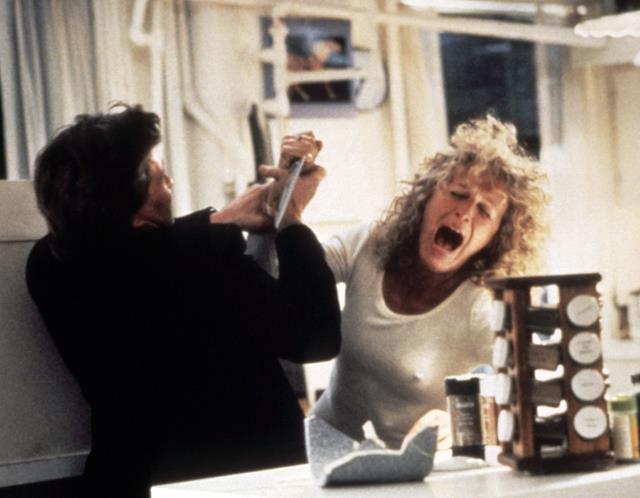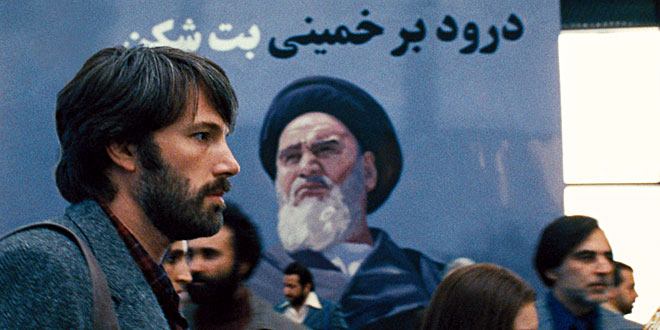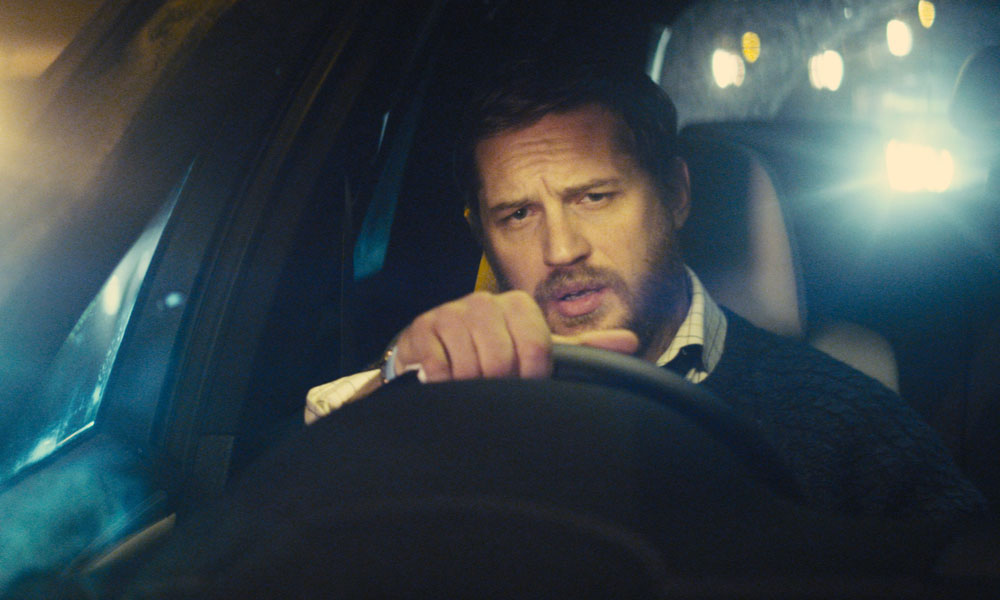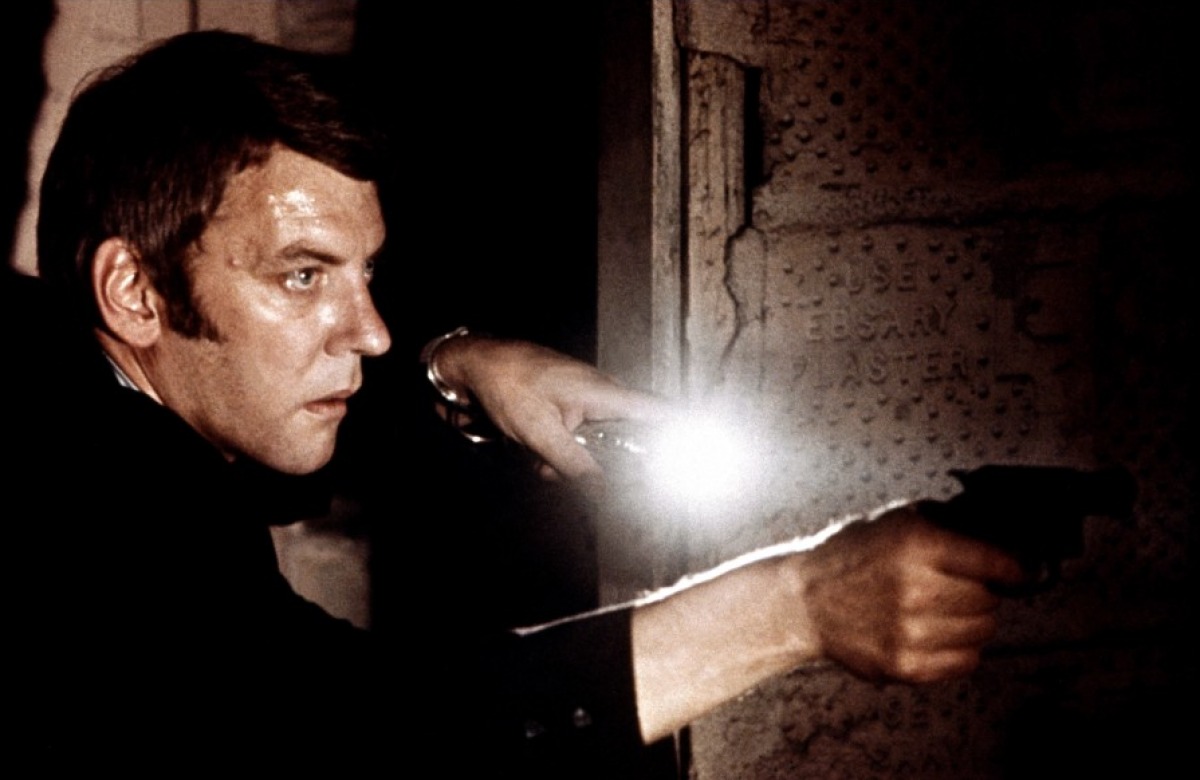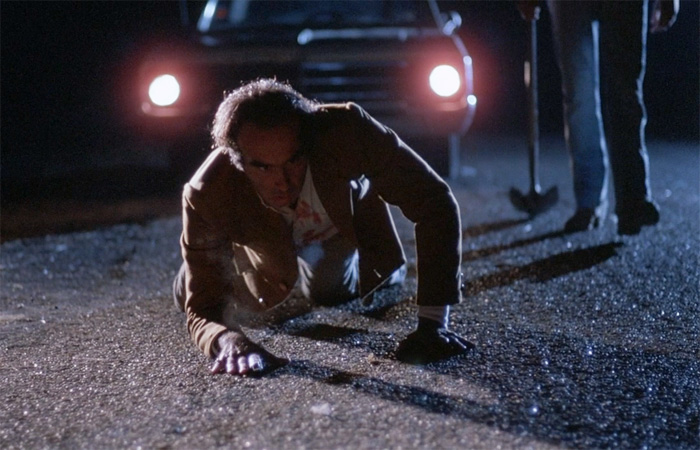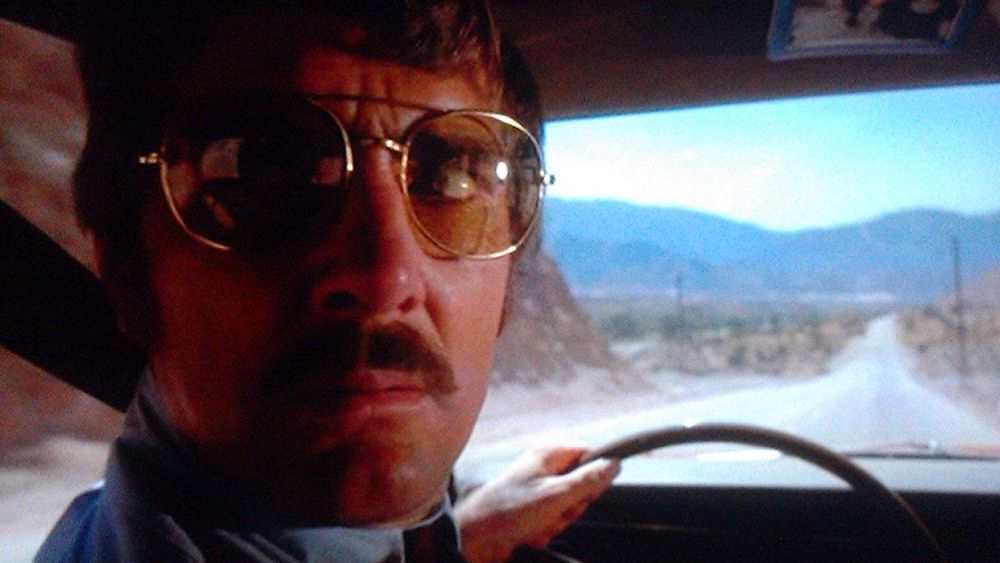
There is a reason Alfred Hitchcock was, is and always will be regarded as the Master of Suspense: he perfected the genre, created its rules and instinctively knew as well, when to break them. Hitchcock left a legacy of Suspense-Thrillers, including his excellent silent work, which should be watched, studied and dissected by any serious student of cinema.
But what if we removed Hitchcock from a list of the greatest Suspense-Thrillers of all-time, what films would make the list? Before we venture forth with a list of thirty excellent candidates I think it necessary to place parameters upon what we’re even talking about when we a call a film a “Suspense-Thriller.”
Just what are the parameters for calling a film a “Suspense-Thriller” apart from a Horror film, a Supernatural-Thriller, or a Crime-Thriller? Without further adieu, here is my working definition (at least for this article’s sake) for the parameters of a Suspense-Thriller:
The Suspense-Thriller is a film whose storyline includes a slow burn of intense, GROUNDED IN REALITY ACTION that puts RICHLY DEVELOPED CHARACTERS IN PERIL as its priority, character(s) AN AUDIENCE CARES AND WORRIES ABOUT. As the audience gets to know and identify with this/these character(s) they begin to worry deeper and deeper about them, hoping against hope that they’ll emerge from their increasingly difficult (more often than not dangerous) predicament unharmed.
There will be anxiety producing action and excitement, often complimented by pressure relieving comic moments followed by terrifying developments that BORDER ON HORROR, without crossing over into that genre’s propensity for gore, or the action-adventure genre’s use of “over-the-top,” ungrounded, unrealistic thrills.
It’s good to keep in mind that while many genres use elements of the Suspense-Thriller parameter, the filmmaker’s over-arcing goal is usually to serve their chosen genre (such as the example given of Ridley Scott’s Sci-fi/Horror “Alien” or Nolan’s sublime Superhero-Crime-Action-Adventure hybrid “The Dark Knight Rises”). That said, with a true Suspense-Thriller, the filmmaker usually stays within the parameters of the Suspense-Thriller listed above.
There are also a myriad of genre films that wind up adhering more closely to the Suspense-Thriller definition than they might to their own genre’s rules, and thereby may be classified as a Suspense-Thriller by this writer. This is seldom the case, but some examples are listed below.
30. Breakdown (dir. Jonathan Mostow, 1997)
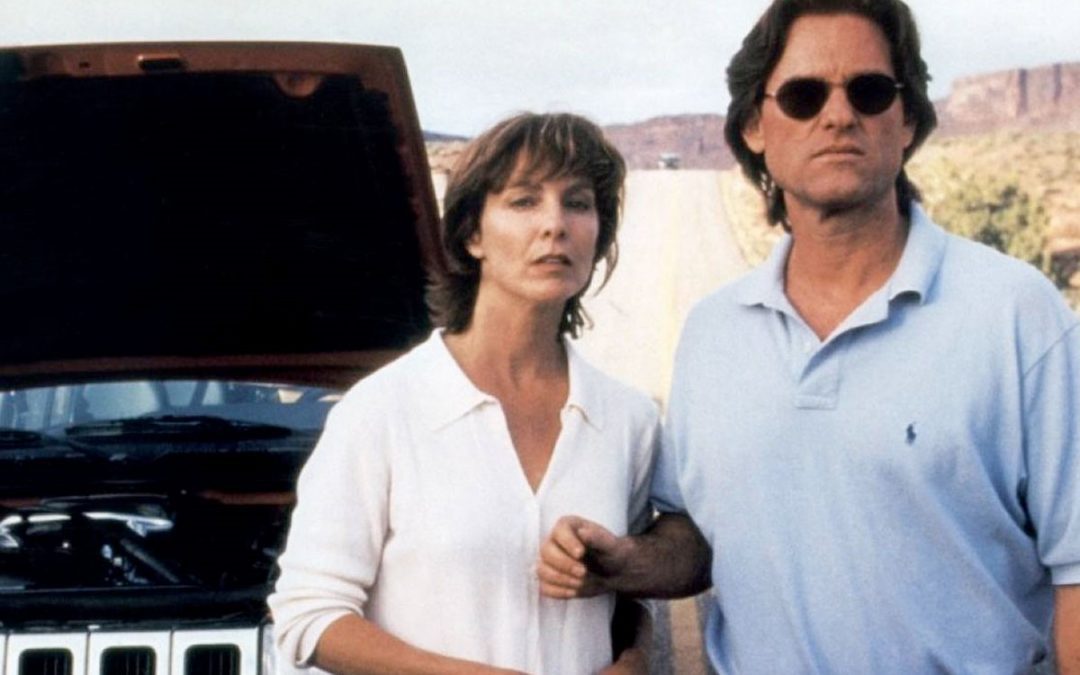
Jonathan Mostow’s highly underrated “Breakdown” came and went with a whimper in 1997, yet this is little B-movie gem has wound up having a shelf life (file-life?) far beyond its initial reception. Kurt Russell and Kathleen Quinlan star as Jeff and Amy, a once yuppie couple hoping to find a new life in California.
But when their Jeep Cherokee breaks down, they run into the sinister friendliness of the late veteran character actor J.T. Walsh, whose offer to help these stranded motorists turns into their worst nightmare.
What propels “Breakdown” into the realm of the Suspense-Thriller rather than an Action film is Kurt Russell’s deeply felt performance as the desperate, unraveling and terrified everyman Jeff as well as J.T. Walsh’s disturbingly believable truck driver Red Barr, a loving family man who just happens to keep a private cellar in his barn for his kidnapped prey. Both actors keep the action and the chase scenes psychologically grounded in a chilling reality.
29. Fatal Attraction (dir. Adrian Lyne, 1987)
In Adrian Lyne’s “Fatal Attraction” Michael Douglas plays Dan Gallagher, happily married with a young daughter. All of this begins to unravel when Dan, with his family out of town, decides to act on his flirtations with business associate Alex Forrest (Glenn Close). The rest plays out like a piano wire increasingly stretched and tightened as Alex’s taunts and insistence that she is “not going to be ignorrrrred” go over the edge of sanity until the entire grand piano comes crashing down from within.
Close’s performance is a pressure cooker of horror, metaphorically and in the case of one pet bunny, literally. While the ending verges on losing its Suspense-Thriller pedigree as it veers off into “Friday the 13th” territory, it is worth pointing out that the original ending featured Alex committing suicide, leaving evidence that incriminates Dan of her murder.
However, as much as the film’s original ending seems more in keeping with the film’s grounded approach, its execution, as can be seen on a special DVD edition, is lackluster, making the U.S. theatrical release version clearly preferable.
28. Argo (dir. Ben Affleck, 2012)
Who was expecting the star of “Gigli” and “Jersey Girl” to become Ben Affleck, master of the Social-Political Suspense Thriller? Ben Affleck’s renaissance as a director reached its highest point yet with his 2012 Academy Award Winning film “Argo.”
This unlikely true tale of how the C.I.A used the cover of being a Hollywood production company scouting locations in Iran in order to sneak Americans hostages out is a near perfect piece of intelligent, forceful entertainment. Produced by Grant Heslov and George Clooney, the finely calibrated screenplay by Chris Terrio is masterfully handled by Director and star Affleck as it navigates from Political-Drama, to Hollywood insider comedy, all wrapped in the package of being an absolutely pulse-pounding Suspense-Thriller.
What could have easily suffered from a disjointed tone (as was the case with Clooney and Heslov’s tonally fragmented “The Monuments Men”) becomes a dynamically fulfilling movie that would have made Hitchcock in his patriotic modes of “Sabotage” and “Foreign Correspondent” very proud indeed.
27. Buried (dir. Rodrigo Cortés. 2010)
“Buried” is a truly inspired, underappreciated Suspense-Thriller starring Ryan Reynolds as Paul Conroy, an American civilian Truck Driver in Iraq who is attacked by terrorists, knocked out only to awaken buried alive in a wooden box. And that’s where the film opens, and where we remain throughout. With only a zippo lighter, a flashlight, and a Blackberry cell phone (this takes place in 2006), writer Chris Sparling makes an impossible storytelling premise work impossibly good as he continues adding challenges macro and micro to Paul’s overall buried alive predicament.
And Cortés’ dexterous direction makes the absolute most of the tight space. While remaining within Paul’s coffin the entire time, he occasionally moves “outside the box” so to speak, making the wonderful, expressionistic choice of expanding the box to rise high above, or to the side of Paul at just the right moments as if the camera were the expression of Paul’s (and the audience’s) desperate emotional and physical need for space.
As Paul, Ryan Reynolds shows surprising range as he takes the chance of being a deeply flawed character, a man whose constricted space forces him to expand and grow through his contact with the excellent Voice Over actors at the other end of his Blackberry lifeline. Cortés has been quoted as saying his working model was to continually ask himself how Hitchcock would handle the material.
Indeed, from the beautifully rendered opening title sequence by Jorge Calvo which calls to mind Saul Bass’ brilliant title work on “Psycho” to the adventuresome use of gallows humor and swirling theatrical camera movements, one suspects the Master of Suspense would have chomped at the bit to tackle this challenging tale.
26. Locke (dir. Steven Knight, 2013)
“Locke” is a completely grounded, one might even say rigorously grounded Suspense-Thriller about eighty minutes in the life of Ivan Locke, a happily married family man and construction supervisor, on the eve/dawn of the pinnacle achievement of his professional life just as he has discovered a woman he had sex with one drunken night on a business trip eight months ago is having a pre-mature C-section to deliver his baby, now, at a hospital an hour and a half away.
While he’s been aware of the child, he thought he still had time to confess to his wife about it. Not anymore. His entire life’s ambition to evolve beyond his dead father’s drunken, abusive, misogynistic ways and truly become a good man has, in Ivan’s mind, reached its tipping point moment, tonight, now, and as the speakerphone calls commence, you are there with him to see which way he’ll fall.
Not only is Hardy’s performance Oscar-worthy, but a special Oscar should be given for Best Ensemble of Voice Only Talent for the actor’s on the other end of Locke’s speakerphone. Never are they caricatures as you often find even in the best films or television shows (“Talk Radio” and “Frasier” come to mind).
Each performer gives such specific, personally infused performances that their faces seem to flicker before your eyes just as the reflections of London’s M16 traffic and memories of Locke’s abusive father dance before Ivan’s. Do yourself a favor: see it.
25. Klute (dir. Alan J. Pakula, 1971)
Jane Fonda won an Oscar for her role as high priced call girl Bree Daniels who is forced out of her numb, hardened existence by Donald Sutherland’s private detective John Klute in Alan J. Pakula’s perfect little Suspense-Thriller. The narrative wastes no time setting up the plot as we dive headfirst into the character’s lives with the story already in process.
Pakula’s “character first/plot second” approach only serves to heighten rather than diminish what is actually an average storyline. Along with the excellent performances from Fonda and Sutherland’s soulful characters, one of the keys to this film’s success is Gordon Willis’ extraordinarily dark cinematography.
The muted colors and Rembrandt inspired chiaroscuro palette of the film, controversial and derided at the time, contributes mightily to the psychological tension of characters emotionally on the cusp of either emerging from or being swallowed up by their own dark tendencies.
24. Blood Simple (dir. Joel and Ethan Coen, 1984)
A love triangle in a small Texas town leads to murder as well as a comedy of violent errors in The Coen Brothers’ accomplished debut film, “Blood Simple.”
1984 was a year filled with excellent “Neo-Noirs” (DePalma’s “Body Double” and Taylor Hackford’s “Against All Odds” stand out) but the Coens took their film beyond the edge of Noir with it’s focused intensity on location ambiance, wonderfully tweaked performances (M. Emmet Walsh is a particular stand-out, as the slimy private investigator) as well as the Coens’ audacious use of gruesome, painfully realistic violence juxtaposed with black comedy.
As the film teeters gracefully on the edge of horror, comedy, and being a straight-laced, forlorn love story, the Coen’s “Blood Simple” may be the finest example of filmmakers combining elements found in the best Hitchcock thrillers, while at the same time creating a universe uniquely their own.
